How to get documents notarised
You will find the details of the nearest Notary to you on the Directory of Notaries Public in Northern Ireland page where there will be a link to the Notary’s firm. You can also use the interactive map which will also show you how to get there.
You are not obliged to go to your nearest Notary because although Notaries Public are appointed to specific areas in Northern Ireland, they are not restricted to practising in that particular area.
Telephone or e-mail the Notary’s office in advance to check the Notary’s availability and ask for an appointment. Do not simply arrive at the Notary’s office without an appointment and expect to be seen. Your business may be urgent and vital but even so the Notary may not be there or may not be able to attend to your business immediately. By making an appointment you will avoid being disappointed and you may save yourself a wasted journey.
When making an appointment, please give the Notary or his receptionist as much information as possible, particularly your telephone number(s) and e-mail address so that you can be contacted if the Notary becomes available at an earlier time or if a difficulty should arise.
Most Notaries will e-mail you a copy of their Terms of Engagement which you should print off, sign and bring with you to your appointment.
You will usually receive the document (generally a Power of Attorney) by e-mail from the foreign lawyer, often accompanied by detailed instructions about signing it. It should say whether the document should be Apostilled or legalised but if it does not then please ask the lawyer to confirm what is required. If you can, please forward the e-mail with the attached document (in Word format, not PDF) to the Notary Public prior to your appointment. He will then be able to tailor it to fit the particular circumstances and have it ready when you arrive. It will also assist the Notary in complying with the formalities of the particular country for which the Power of Attorney is intended. There are different forms of official verification of signatures which the Notary Public will explain to you, if necessary.
If the document refers to your Passport, please check that the number on your Passport is the same as that on the document. Please also ensure that your Passport is still valid.
If a document requires the insertion of additional information such as dates of birth, etc. then please ensure that you have completed it as fully as possible prior to your visit. Doing it at home in your own time is less stressful and you are less likely to make mistakes. If you are in doubt about any particular entry, leave it blank and the Notary will endeavour to help you. But please remember that it is not his function to fill in forms for you and he may charge you extra if he has to spend a lot of time doing so.
If any other identifying detail is given in the document to be notarised e.g. a tax number, then whatever document proves that other detail must also be produced to the Notary.
Please make sure that you turn up for your appointment on time. Notaries are busy people and if you are going to be delayed please phone ahead as your appointment may have to be re-scheduled so that the appropriate amount of time may be devoted to your matter.
Electronic notarisation i.e. the means whereby an electronic version of a document may be verified by way of a Notary’s electronic signature, is already with us although at the time of writing its use is still quite limited. No doubt, as with other forms of electronic communication, its use will expand exponentially.
